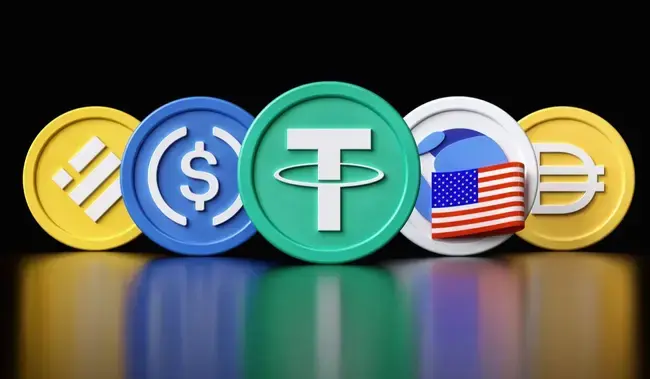Highlights:
- US bank groups warn GENIUS Act loophole could trigger $6.6 trillion deposit outflows.
- Yield payments via exchanges may bypass the law and risk credit supply and higher borrowing costs.
- The stablecoin market is currently $280.2 billion, projected to reach $2 trillion by 2028.
Major US banking groups, led by the Bank Policy Institute (BPI), have expressed concern over a gap in the GENIUS Act’s stablecoin rules. In a letter to Congress on Tuesday, they pointed to a loophole that could let stablecoin issuers and associated partners indirectly offer interest or yields. They warned this could draw deposits away from banks and disrupt the financial system.
On July 18, President Donald Trump signed the GENIUS Act into law, which bans stablecoin issuers from directly paying interest or yields to token holders. However, the legislation does not explicitly prohibit affiliated companies or crypto exchanges from providing these returns. Stablecoin providers often use yield as a key incentive to attract users, sometimes rewarding holders through platforms like Coinbase and Kraken. The banking groups fear this could sidestep the law’s intent and weaken the banking system’s role in credit provision.
🚨 US bank groups are urging Congress to address a loophole in the GENIUS Act allowing stablecoin issuers to offer yields via affiliates. They worry it could undermine the banking system. 🏦💰 #CryptoNews #Stablecoins #Mercex #MercexNews
— Mercex (@mercex_io) August 13, 2025
Stablecoin Yields Threaten Traditional Banking and Credit System
The letter emphasized that stablecoins are not equivalent to bank deposits or money market funds. Unlike banks, stablecoin issuers do not fund loans or invest in securities to generate yields. BPI pointed out, “These distinctions are why payment stablecoins should not pay interest the way highly regulated and supervised banks do on deposits or offer yield as money market funds do.”
The letter, citing an April US Treasury report, warned about paying yields on stablecoins. It said this could cause $6.6 trillion to leave traditional bank deposits. This shift could threaten the US credit system by increasing deposit flight risk, particularly during financial stress. Reduced deposits would lead to fewer loans, higher borrowing costs, and challenges for businesses and households relying on credit.
Coinbase and PayPal, which are largest US crypto-linked companies, intend to retain stablecoin yield to their customers. In their latest earnings calls, both company officers indicated that their respective companies would continue user rewards for stablecoins on their platforms. They asserted that their respective companies do not fall within the reach of the law’s bans.
Coinbase and Paypal circumvent the GENIUS yield law.
The GENIUS Act, enacted on July 18, 2025, prohibits stablecoin issuers from offering interest or passive yield (typically 3-5%) to holders, aiming to position stablecoins as payment tools rather than investment products.…
— MartyParty (@martypartymusic) August 5, 2025
Stablecoin Market Size and Growth Expectations
The current stablecoin market remains small compared to the overall US money supply. According to the Federal Reserve, the US dollar money supply was $22 trillion at the end of June. The total stablecoin market capitalization stands at about $280.2 billion. Tether (USDT) and USD Coin (USDC) dominate the stablecoin space, accounting for $165 billion and $66.4 billion, respectively, according to CoinGecko data.
The Treasury anticipates the stablecoin market could expand dramatically, possibly reaching $2 trillion by 2028. The GENIUS Act is seen by some analysts as a move to support the US dollar’s global dominance by encouraging the use of dollar-backed stablecoins. The law seeks to make dollar-backed stablecoins compete with other currencies while reinforcing the dollar’s global reserve dominance.
🇺🇸 US Treasury Secretary: "Stablecoins could reach $2 trillion by 2028"
During a hearing before the US Senate, Treasury Secretary Scott Bessent predicted that the market for dollar-backed stablecoins could surpass $2 trillion within three years.
The GENIUS Act, the stablecoin… pic.twitter.com/iLWYnYN3gU
— Atlas21 (@Atlas21_news) June 12, 2025
Best Crypto Exchange
- Over 90 top cryptos to trade
- Regulated by top-tier entities
- User-friendly trading app
- 30+ million users
eToro is a multi-asset investment platform. The value of your investments may go up or down. Your capital is at risk. Don’t invest unless you’re prepared to lose all the money you invest. This is a high-risk investment, and you should not expect to be protected if something goes wrong.






